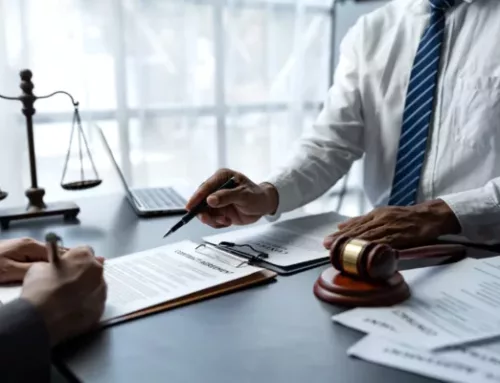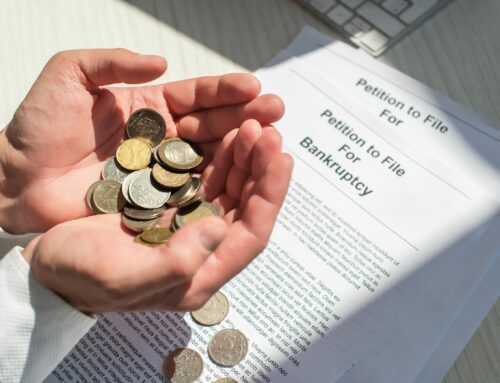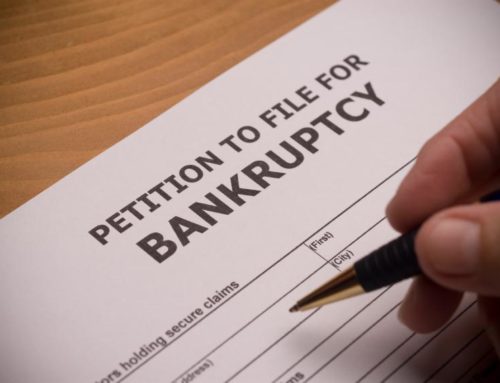Filing bankruptcy requires a bankrupt individual to go through a serious legal process. This generally begins with bankruptcy counseling and taking the means test. Proceedings in the bankruptcy court, however, are not as simple as they may seem. For this reason, if you are presently considering bankruptcy, it is best to consult with a trusted local attorney who is knowledgeable with all federal and state laws that must be taken into account. Seek legal advice from a seasoned Wheeling bankruptcy attorney who will look closely into your case.
An Overview on Filing Bankruptcy Cases
A person struggling financially will likely consider working on a bankruptcy case to address his or her financial problems. In general, a bankruptcy filing could help the filer pay back lenders, wipe out certain types of debt, and financially have a fresh start in life. For this reason, declaring bankruptcy is generally considered a good debt-relief option.
There are numerous types of bankruptcy, which are best for different individuals, depending on their specific circumstances. When filing for bankruptcy, debts can be wiped out either after having certain assets liquidated (liquidation) or making payments following an approved debt-repayment plan (reorganization). An experienced bankruptcy lawyer in Wheeling can explain the differences between these bankruptcy filings.
What is Referred to as a Bankruptcy Discharge?
According to the bankruptcy code, when you declare bankruptcy (under filing Chapter 7 or 13), a court order will discharge debts that you owe from certain lenders. If a declaration of bankruptcy leads to a discharge, debt collectors are no longer allowed to ask for repayment for what the debtor owed them. This means that you need not pay off creditors of loans that were wiped out after a successful bankruptcy petition.
Forgiven or discharged debt is usually associated with a Chapter 7 petition for bankruptcy. Certain debts are also dischargeable through a Chapter 13 bankruptcy petition, although the time involved is significantly longer, a bankrupt individual would have to wait longer. Because one must first make all monthly payments that were included in the debt payment plan, the process would likely be finished in three or five years.
When choosing between the two common bankruptcy types mentioned above, your specific financial problems will factor in. If your debts are generally dischargeable, then a Chapter 7 bankruptcy declaration will likely be best. In contrast, if you need to deal with mostly non-dischargeable debts, a bankruptcy Chapter 13 debt repayment plan may be a better option.
What Debts may be Discharged or Forgiven through Filing Bankruptcy?
Under relevant bankruptcy laws, a person who filed for bankruptcy would likely have all unsecured debts discharged (unpaid medical bills, credit card bills, utility payments). Personal loans and some forms of tax debt may also be included but on a case-to-case basis. Conversely, loans that are generally not included in the discharge include alimony or child support owed, criminal fines or penalties, and specific tax debt. Additionally, student loans must still be paid off, even after declaring bankruptcy.
A person who files for bankruptcy Chapter 13 will often have nonpriority unsecured debts discharged. As in above, although student loans fall under this category, they can only be discharged if you can prove in an adversary proceeding that it will be an undue hardship to pay the debt.
How do I Know if my Chapter 13 has been Discharged?
Once you complete your Chapter 13 debt repayment plan, you will receive a discharge order that will wipe out the remaining balance of all qualifying debts. To an extent, a Chapter 13 bankruptcy discharge is broader than that of Chapter 7 because it wipes out certain debts that are not covered by the latter.
When you have completed your Chapter 13 payment plan, your remaining nonpriority unsecured debt balances will be forgiven. A discharge notice from the court will stop creditor or debt collector harassment and even wage garnishment. Such notice is sent to your bankruptcy trustee and your unpaid creditors.
Take note that the specifics of bankruptcy rules could vary from court to court. If you want to learn more about the discharge of specific types of debt, consult with credible Wheeling bankruptcy attorneys.
Seeking Legal Help on the Bankruptcy Process and How to File for Bankruptcy
Competent bankruptcy lawyers can explain how filing a petition can help you stop foreclosure or repossession of personal property. He or she can help you fill out bankruptcy forms, prepare the required paperwork and supporting documents, and assist you even after bankruptcy.
Successful bankruptcy proceedings have helped so many individuals dealing with debt. Get in touch with a bankruptcy law firm that can help with your case. Contact us at Thomas E. McIntire and Associates to consult with an experienced Wheeling bankruptcy lawyer who will help you with every step of the way.






